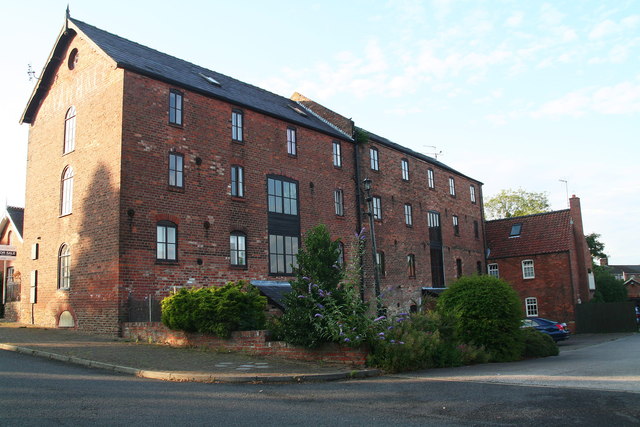Louth Riverhead, Bryan Hall Mill
Introduction
The photograph on this page of Louth Riverhead, Bryan Hall Mill by Chris as part of the Geograph project.
The Geograph project started in 2005 with the aim of publishing, organising and preserving representative images for every square kilometre of Great Britain, Ireland and the Isle of Man.
There are currently over 7.5m images from over 14,400 individuals and you can help contribute to the project by visiting https://www.geograph.org.uk

Image: © Chris Taken: 7 Aug 2012
Bryan Hall sold the Bryan Hall Crown Mills complex for development when he retired. The estate is named "Old Mill Park". In photo Image] his name can still be seen on the end of this building. He died in 2006, bringing to an end a tradition of milling in Louth that goes back nearly 200 years to a time when the Hall family owned windmills (which were destroyed by fire in 1873 and 1905) and later the watermill in Ramsgate Road. The mill derived its power from the river Lud, supplemented by a turn-of-the-century Ruston Bucyrus diesel engine. Animal feeds, mixed from local cereals, and with evocative names such as Growers' Mash and Layers' Mash (for hens), were supplied to the farmers of East Lindsey; the Three Crowns flour with its endorsement "pura et nivea" was also used throughout the district, including by another branch of the family, Alfred Hall, bakers. Bryan was a man of his time and place. Louth after the second world war relied on its merchants and traders for a sense of civic wellbeing. He was a founder member of the Round Table and president of the local 41 Club. He also helped establish Louth jazz club, which, for a time, met at the mill. http://www.guardian.co.uk/news/2006/jan/18/obituaries.mainsection

